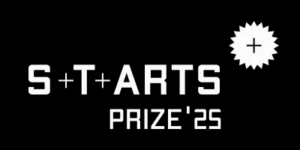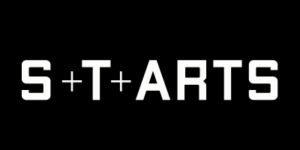Das sind die Preisträger*innen des S+T+ARTS Prize – Grand prize of the European Commission honoring Innovation in Technology, Industry and Society stimulated by the Arts.
Grand Prizes 2018
-
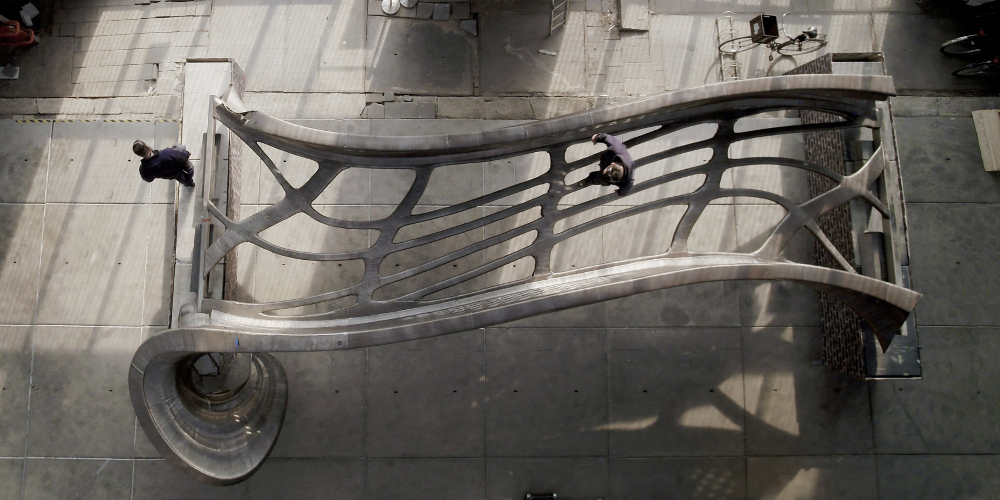
Amsterdam’s 3D Printed Steel Bridge
MX3D & Joris Laarman Lab
The project’s most iconic image shows robots autonomously printing a steel bridge over a canal. The MX3D bridge project thus started as a visionary moonshot project, an artist’s dream. Several years later that dream has been solidified in the 3D printed stainless steel bridge. This fully functional pedestrian bridge for the city center of Amsterdam…
-
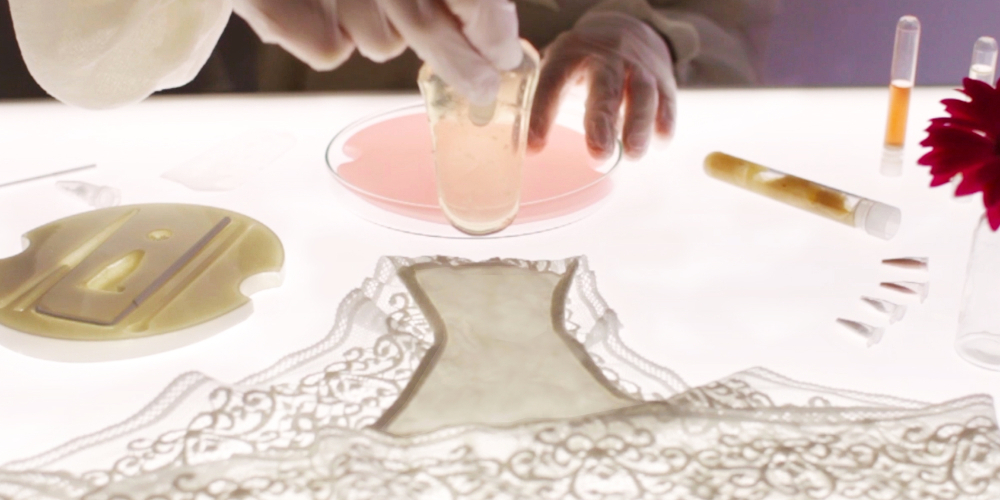
Future Flora
Giulia Tomasello
Future Flora aims to encourage this symbiotic relationship that raises the beneficial presence of microbes and bacteria in the human body, suggesting an alternative: to wear probiotics and keep our body healthy. Future Flora is a harvesting kit designed for women to treat and prevent vaginal infections. The user is a woman who wants to…
Honorary Mentions 2018
-
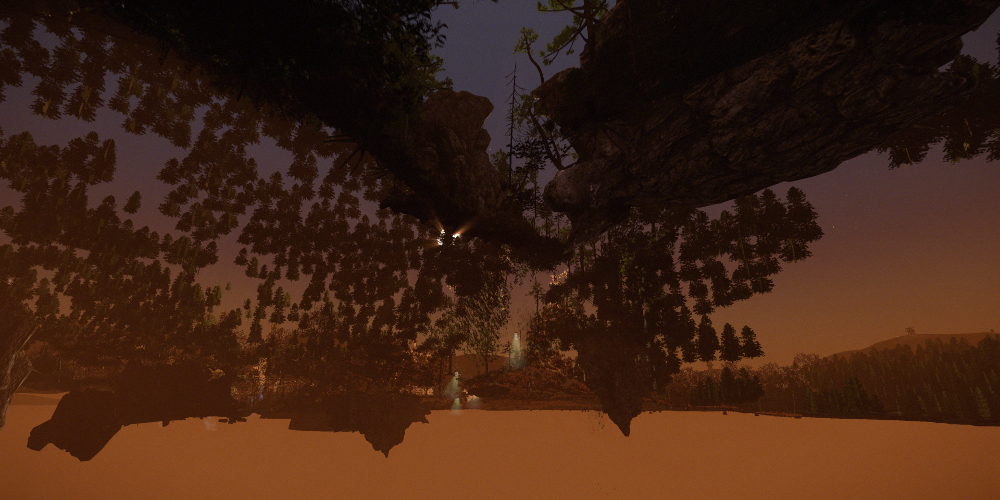
489 Years
Hayoun Kwon
489 Years shows an animated landscape of the Demilitarized Zone between North and South Korea, based on the narration of a former soldier who had entered the DMZ¬–one of the most dangerous and heavily armed places in the world.
-

BLITAB – the innovative tablet for the blind
Kristina Tsvetanova, Slavi Slavev / BLITAB Technology GmbH
BLITAB® is the world’s first tactile tablet for blind and partially sighted people. It is the first ever Braille tablet using an innovative actuating technology to create tactile text and graphics in real time. The invention is the ‘smart tactile technology’ that can be used also in various products and smart body applications.
-
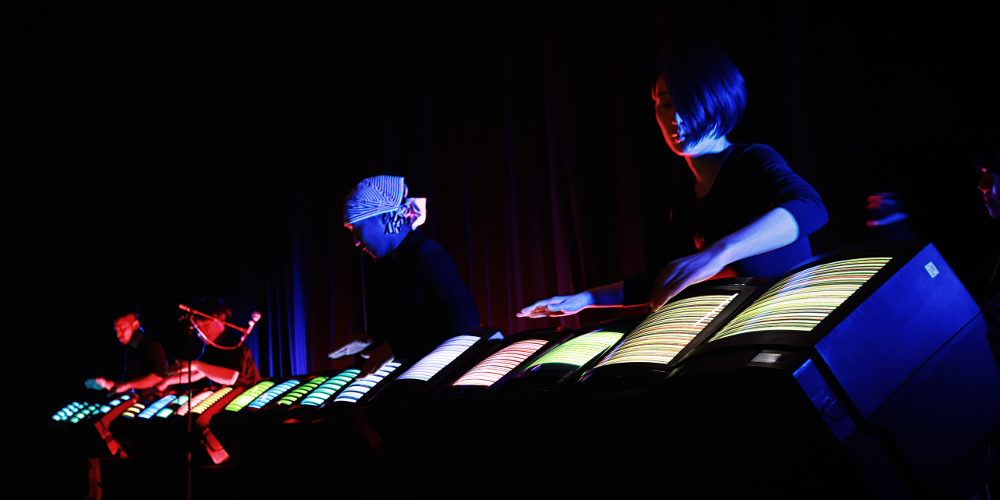
ELECTRONICOS FANTASTICOS!
Ei Wada + Nicos Orchest-Lab
ELECTRONICOS FANTASTICOS! is a project where retired consumer electronics are resuscitated as instruments, new ways to play music are invented, and all kinds of people are invited to be orchestrated with the artist and musician Ei Wada.
-
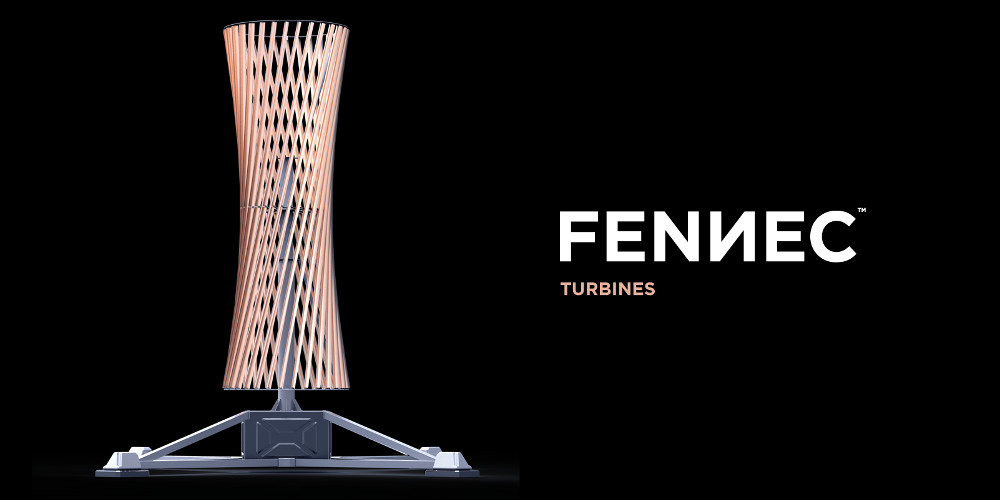
Fennec Turbine
Maxim Kuzin, ATOM
The Fennec Turbine is a state of the art and technology compact wind turbine with low noise, high safety, and long use. The heart of the technology is a unique hyperboloidal rotor which provides the lowest noise and vibrations.
-
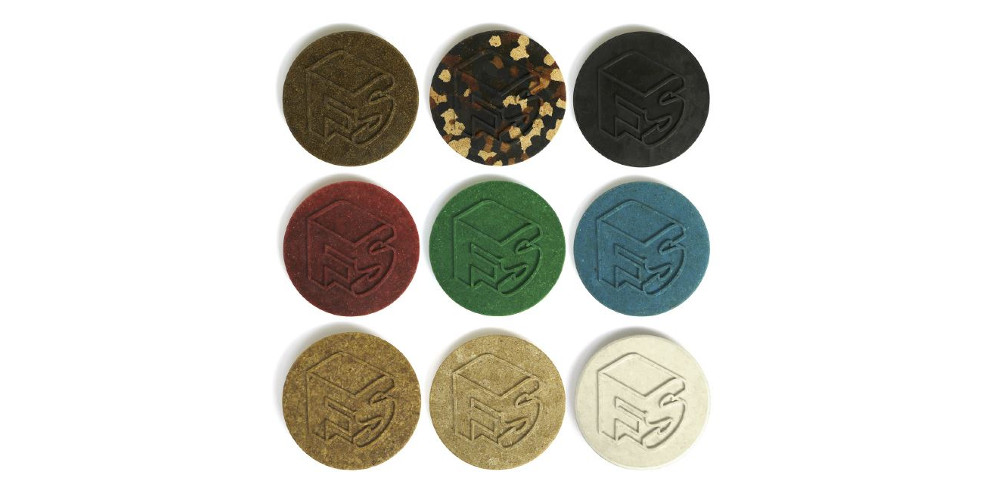
FluidSolids
FluidSolids® AG
FluidSolids® is an innovation that makes it possible to transform organic waste into biocomposites. A technology platform designed for the circular economy.
-
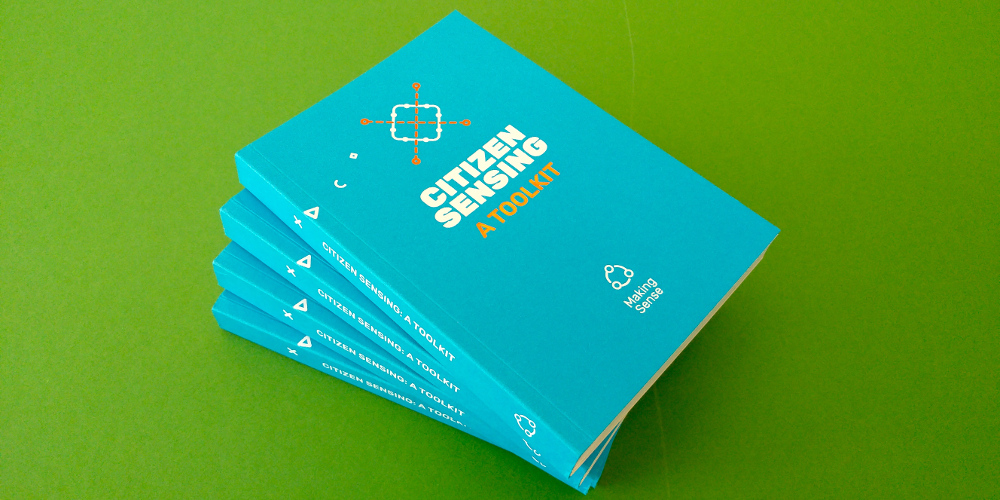
Making Sense – Citizen Sensing Toolkit
Making Sense Team
Making Sense was designed to show how open-source software, open-source hardware, digital maker practices and open-source design could be used effectively by local communities to appropriate their own sensing tools to make sense of their environments, and address environmental problems, mainly in air pollution, noise and nuclear radiation.
-
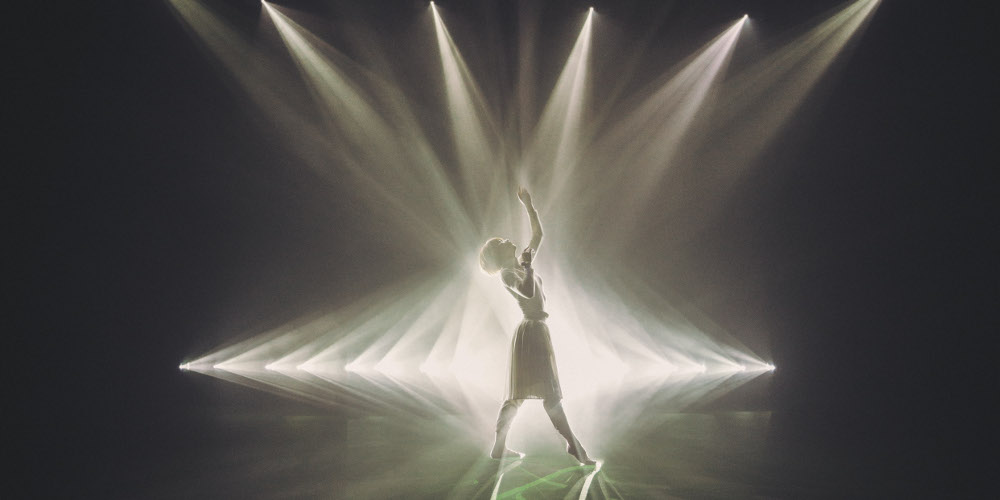
phosphere
Rhizomatiks Research, ELEVENPLAY, evala, Takayuki Fujimoto (Kinsei R&D)
phosphere is an exploratory harmonization of two distinct spaces—a dance stage and an installation component—into one performative spatial whole.
-
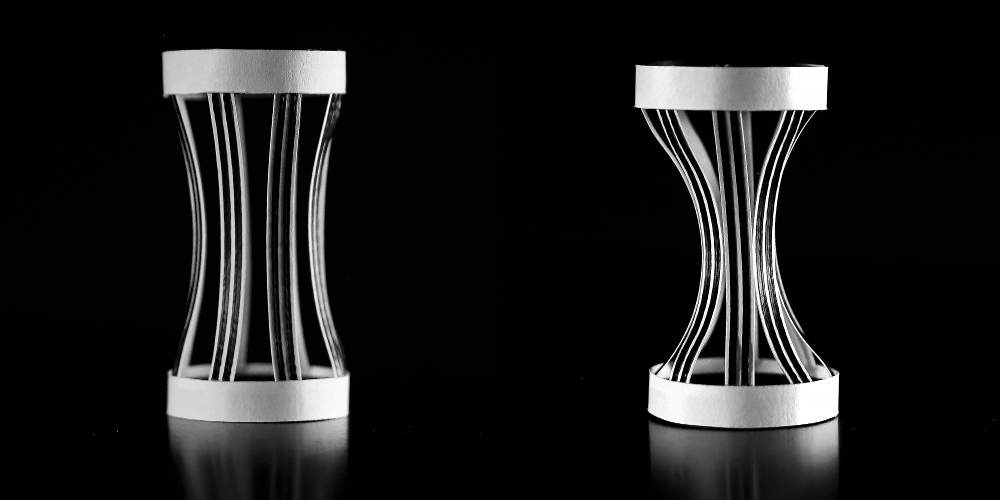
Printed Paper Actuator
Morphing Matter Lab at Carnegie Mellon University
Printed Paper Actuator is the project that achieves a low cost, reversible and electrical actuation and sensing method. This method that requires simple and easy fabrication steps enables our paper actuator to achieve different types of motion and even various electrical sensing abilities: touch sensing, slider, and self-bending-angle detection.
-
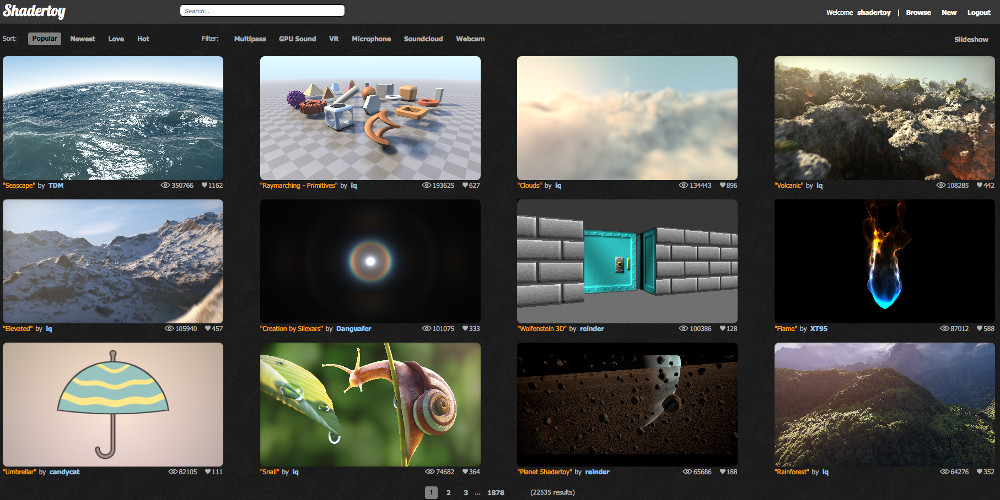
Shadertoy
Pol Jeremias Vila, Iñigo Quilez / Beautypi
Shadertoy.com enables artists, programmers, technical artists, and professors from all over the world to create visuals with code, and then share their work while learning from other creators.
-
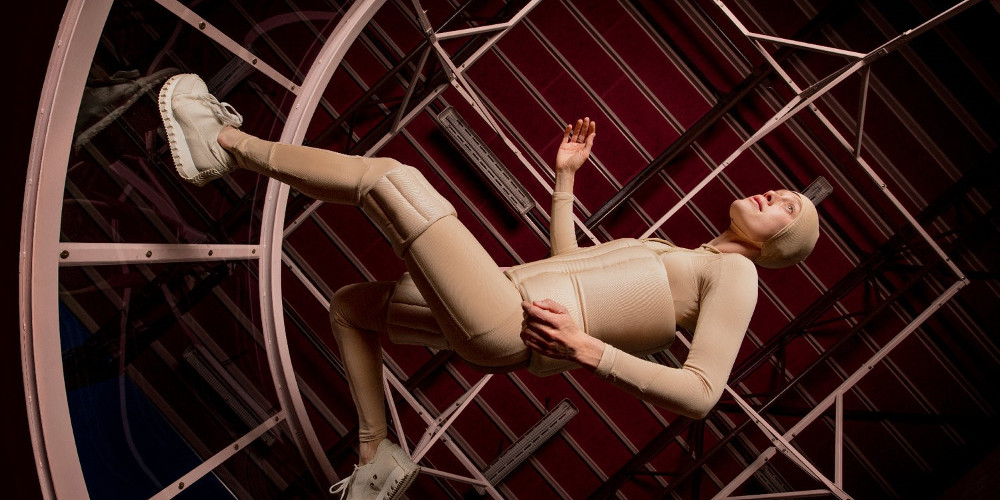
The Institute of Isolation
Lucy McRae
The Institute of Isolation is an observational documentary that contemplates whether isolation; or more broadly speaking, extreme experience, can be used as a gateway to training human resilience.
Nominations 2018
-
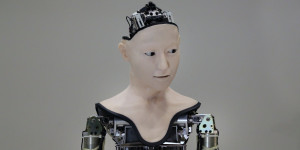
Alter
Kohei Ogawa, Itsuki Doi, Takashi Ikegami, and Hiroshi Ishiguro
Alter is a robot developed for the purpose of exploring what it means to be “life-like.” Alter appears to be a machine that has been stripped bare. However, it expresses life-likeness through complex movements. These movements may look haphazard, but change constantly due to the underlying algorithm that mimics the logic of neural circuits of…
-
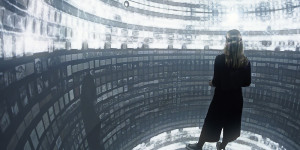
Archive Dreaming
Refik Anadol Studio
Commissioned to work with SALT Research collections, artist Refik Anadol employed machine learning algorithms to search and sort relations among 1,700,000 documents. Interactions of the multidimensional data found in the archives are, in turn, translated into an immersive media installation.
-
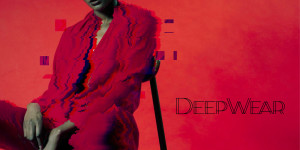
DeepWear
Natsumi Kato, Hiroyuki Osone, Yoichi Ochiai
We made clothes using the system DeepWear through a series of designs, such as design by deep learning, patterning by patterners, and creation of costumes. With this DeepWear, it is possible to inherit the design in clothing without depending on the designer.
-
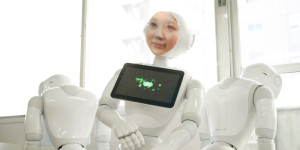
Digital Shaman Project
Etsuko Ichihara
The Digital Shaman Project proposes a new mode of mourning in keeping with the technical advances of today.
-
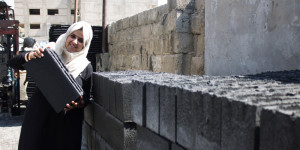
GreenCake Block
Majd Almashharawi
GreenCake Blocks are high-quality, low-cost, and environmentally friendly bricks.
-
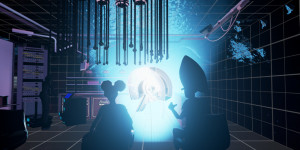
NeuroSpeculative AfroFeminism
Hyphen-Labs / Ece Tankal, Carmen Aguilar y Wedge, Ashley Baccus-Clark, Nitzan Bartov
NeuroSpeculative AfroFeminism is a transmedia exploration told through speculative product design, emerging technologies, cognitive research, and transhumanism. Created by and for women of color, Hyphen-Labs presents a multi-layered possible future that transcends the constraints of the present; a realm which The New Yorker has called “another plane of consciousness.”
-

Norman
James Paterson
In 2017 I created a custom animation tool—for myself. A tool to enable and facilitate my imagination and flow. Norman is the animation tool I’ve always wanted. Named after Norman McLaren, a visionary Canadian animator, the tool is built in JavaScript, runs in a web browser, and lets me animate naturally in 3D using VR…
-
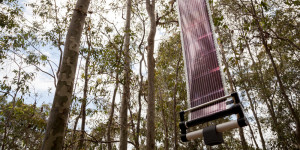
Off Grid
Andrew Styan
Scientific research cannot exist in isolation from society. This is certainly true of renewable energy research where (at least in Australia) the imperative for environmental sustainability is frustrated by short-term economic and political demands. Off Grid responds to these issues.
-
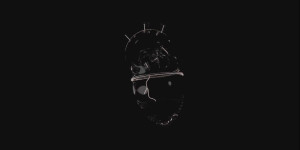
Pounding Heart
Yasmin Litschauer, Chiara Mazanec, Aisling Pircher, Laura Scheidl, Johannes Zottele
Our idea is to visually depict heartbeat frequency by means of a piece of sculpture. While participants wearing headphones listen to various acoustic situations, the change of their pulse is measured by an electronic device, which sends the registered data to the sculpture, where it’s visualized with light.
-
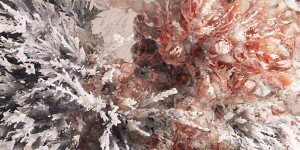
Quantum Fluctuations
Markos Kay
Made as a series of virtual experiments, Quantum Fluctuations shows the complexity and transient nature of the most fundamental aspect of reality, the quantum world, which is impossible to observe directly.
-
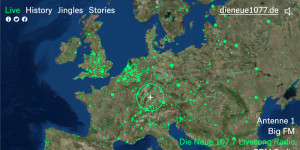
Radio Garden
By bringing distant voices close, radio connects people and places. Radio Garden allows listeners to explore processes of broadcasting and hearing identities across the entire globe.
-
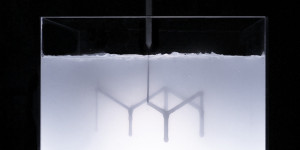
Rapid Liquid Printing
Self-Assembly Lab, MIT + Christophe Guberan + Steelcase
Rapid Liquid Printing physically draws in 3D space within a gel suspension, and enables the creation of large-scale, customized products made of real-world materials. Compared with other techniques we believe this is the first development to combine industrial materials with extremely fast print speeds in a precisely controlled process to yield large-scale products.
-
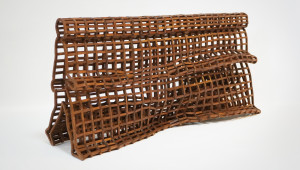
Rediscovery of Anima
Akinori Goto
The aim of this project is to discover „anima,“ which could have existed, but did not exist. The word „Anima“ means „life“ or „soul“ in Latin, and „animation“ derives from this word.
-
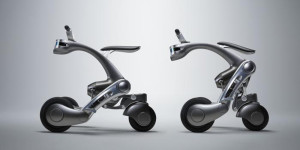
RidRoid „CanguRo“
Future Robotics Technology Center (fuRo), Shunji Yamanaka
As a partner robot, it never leaves the side of its master. It transforms into a vehicle that augments its master’s physical functions—motional and sensory—and travels with the master as one. It is a machine lifeform produced from the latest robotics and AI technologies fused by product design.
-
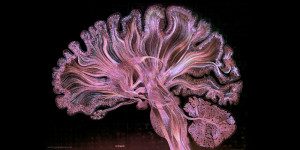
Self Reflected
Greg Dunn, Brian Edwards, Will Drinker
Dr. Greg Dunn (artist and neuroscientist) and Dr. Brian Edwards (artist and applied physicist) created Self Reflected, the world’s most complex artistic depiction of the human brain, to reveal insight into the complexity of consciousness by revolutionizing the way in which the average person thinks about the brain.
-
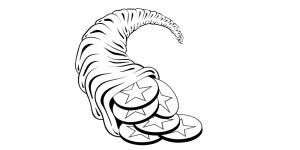
Social Wallet
Dyne.org
The once called Freecoin project, today renamed Social Wallet, is developed by Dyne.org Foundation as a result of 7 years of research, community co-design, and development within the works of two European projects on Collective Awareness Platforms for Sustainability and Social Innovation.
-
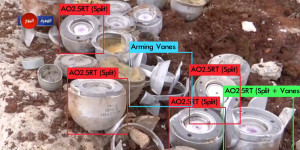
VFRAME: Visual Forensics and Advanced Metadata Extraction
Adam Harvey
VFRAME is a computer vision toolkit designed for human rights researchers and investigative journalists. It provides customized state-of-the-art tools for object detection and quantification, scene classification, visual search, image annotation for creating datasets, APIs to integrate with existing workflows, the ability to train new algorithms, and graphic content filtering algorithms to reduce exposure to traumatic…
-
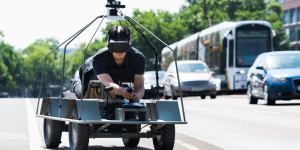
Who Wants to Be a Self-Driving Car?
Joey Lee, Benedikt Groß, Raphael Reimann, MESO Digital Interiors, David Leonard
Who Wants to be a Self-driving Car? is a data driven trust exercise that uses augmented reality to help people empathize with self-driving vehicle systems. We built an unconventional driving machine that lets people use real-time, three-dimensional mapping and object recognition, displayed in a virtual reality headset to navigate through space.
